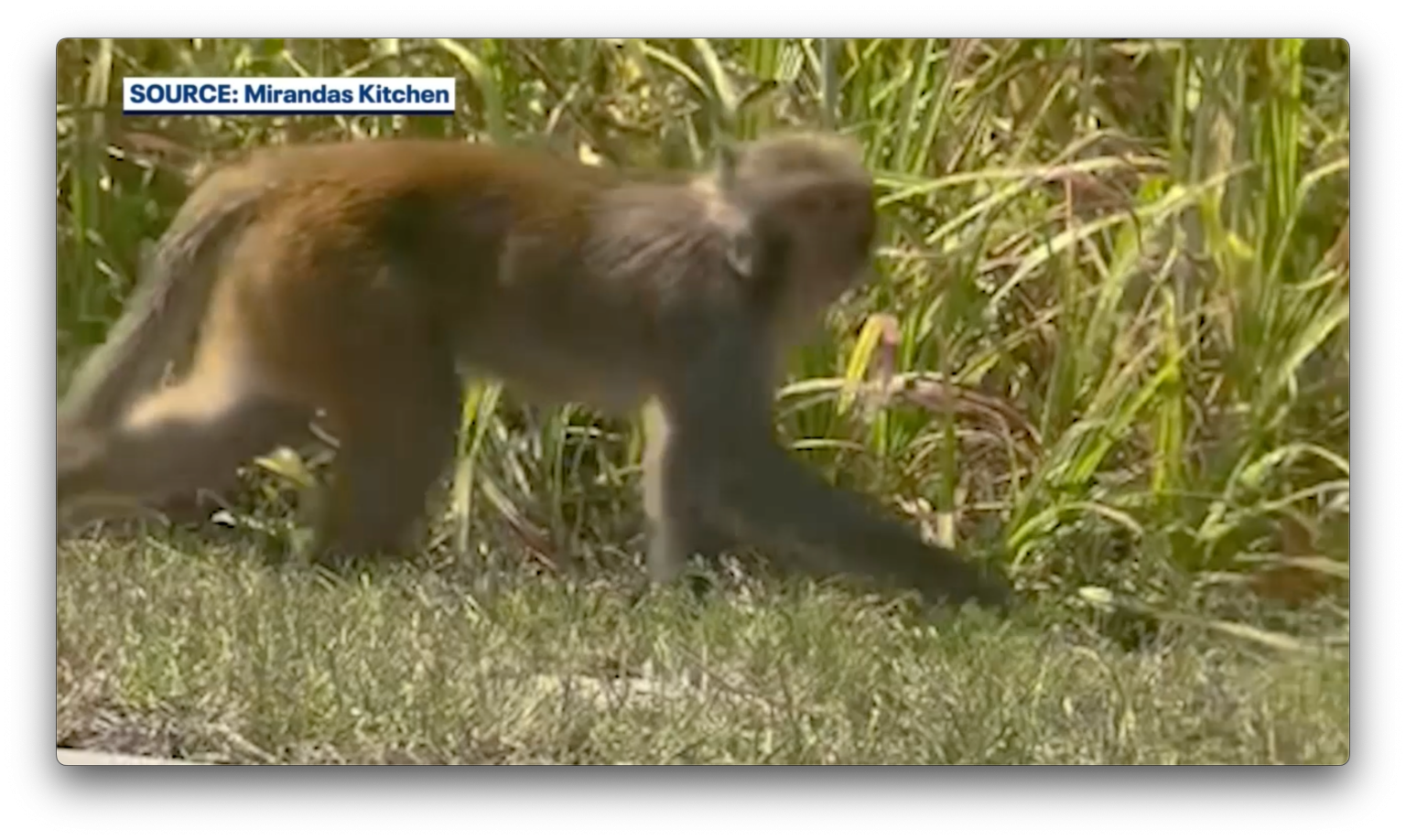Residents in central Florida have been reporting primate sightings in Groveland and Clermont, with videos capturing monkeys roaming the area. One resident described seeing a monkey behind a school while another saw one walking on the roof of a home. Clermont police confirmed receiving reports of monkey sightings on two separate occasions. Primate expert Linda Wasko identified the monkeys as rhesus macaques, suggesting they may have migrated from the Wekiva River area, potentially originating from a group that came from Silver Springs in the 1930s. Macaques have an omnivorous diet and typically avoid contact with humans, sticking with their troops. Wasko recommends reporting any encounters with macaques to the Florida Fish and Wildlife Conservation Commission.
Videos of monkeys walking around Groveland and Clermont in central Florida have sparked curiosity and concerns among residents. One resident captured footage of a monkey behind a school, while another saw one on the roof of a home. Clermont police confirmed receiving reports of monkey sightings. Primate expert Linda Wasko identified the monkeys as rhesus macaques and suggested that they may have migrated from the Wekiva River area, possibly originating from a group that came from Silver Springs in the 1930s. Macaques have an omnivorous diet and typically avoid humans, preferring to stick with their troops. Wasko advises reporting any encounters with macaques to the Florida Fish and Wildlife Conservation Commission to ensure the safety of both humans and the animals.
Residents in Groveland and Clermont, central Florida, have been on the lookout for monkeys after multiple sightings were reported in the area. Videos captured by residents show monkeys walking around, with one even spotted on the roof of a home. Primate expert Linda Wasko identified the monkeys as rhesus macaques and suggested they may have migrated from the Wekiva River area, possibly originating from a group that came from Silver Springs in the 1930s. Macaques have an omnivorous diet and tend to avoid contact with humans, sticking with their troops. Wasko advises reporting any encounters with macaques to the Florida Fish and Wildlife Conservation Commission to ensure the safety of both humans and the animals.
The sightings of monkeys in central Florida have caused a stir among residents, with videos capturing the rare occurrences in Groveland and Clermont. Primate expert Linda Wasko identified the monkeys as rhesus macaques and suggested they may have migrated from the Wekiva River area, potentially originating from a group that came from Silver Springs in the 1930s. Macaques have an omnivorous diet, feeding on lizards, frogs, and birds. They typically avoid contact with humans and prefer to stick with their troops. Wasko recommends reporting any encounters with macaques to the Florida Fish and Wildlife Conservation Commission to ensure the safety of both humans and the animals.
Residents in central Florida have been capturing videos of monkeys walking around in Groveland and Clermont, sparking interest and concern among the community. Reports of primate sightings have led to speculation about where these monkeys may have come from. Primate expert Linda Wasko identified the monkeys as rhesus macaques and suggested they may have migrated from the Wekiva River area, possibly originating from a group that came from Silver Springs in the 1930s. Macaques have an omnivorous diet and typically avoid contact with humans, sticking with their troops. Wasko advises reporting any encounters with macaques to the Florida Fish and Wildlife Conservation Commission to ensure the safety of both humans and the animals.
The recent sightings of monkeys in central Florida have caused excitement and concern among residents, with videos capturing the rare occurrences in Groveland and Clermont. Primate expert Linda Wasko identified the monkeys as rhesus macaques and suggested they may have migrated from the Wekiva River area, possibly originating from a group that came from Silver Springs in the 1930s. Macaques have an omnivorous diet, feeding on lizards, frogs, and birds, and they typically avoid contact with humans, preferring to stick with their troops. Wasko recommends reporting any encounters with macaques to the Florida Fish and Wildlife Conservation Commission to ensure the safety of both humans and the animals.













